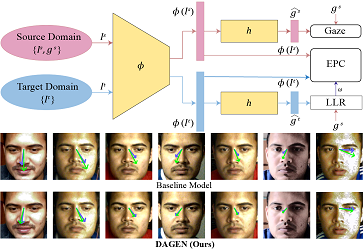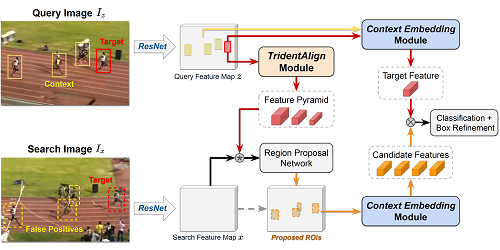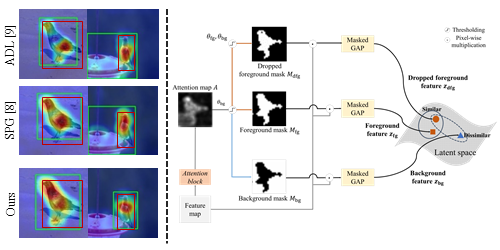Contrastively Smoothed Class Alignment for Unsupervised Domain Adaptation
Shuyang Dai (Duke University)*, Yu Cheng (Microsoft), Yizhe Zhang (Microsoft Research), Zhe Gan (Microsoft), Jingjing Liu (Microsoft), Lawrence Carin (CS)
Keywords: Deep Learning for Computer Vision
Abstract:
Recent unsupervised approaches to domain adaptation primarily focus on minimizing the gap between the source and the target domains through refining the feature generator, in order to learn a better alignment between the two domains. This minimization can be achieved via a domain classifier to detect target-domain features that are divergent from source-domain features. However, by optimizing via such domain classification discrepancy, ambiguous target samples that are not smoothly distributed on the low-dimensional data manifold are often missed. To solve this issue, we propose a novel Contrastively Smoothed Class Alignment (CoSCA) model,~that explicitly incorporates both intra- and inter-class domain discrepancy to better align ambiguous target samples with the source domain. CoSCA estimates the underlying label hypothesis of target samples, and simultaneously adapts their feature representations by optimizing a proposed contrastive loss. In addition, Maximum Mean Discrepancy (MMD) is utilized to directly match features between source and target samples for better global alignment. Experiments on several benchmark datasets demonstrate that CoSCA can outperform state-of-the-art approaches for unsupervised domain adaptation by producing more discriminative features.
SlidesLive
Similar Papers
Domain Adaptation Gaze Estimation by Embedding with Prediction Consistency
Zidong Guo (Xi'an Jiaotong university)*, Zejian Yuan (Xi‘an Jiaotong University), Chong Zhang (Tencent Robotics X), Wanchao Chi (Tencent Robotics X), Yonggen Ling (Tencent), shenghao zhang (Tencent)

Visual Tracking by TridentAlign and Context Embedding
Janghoon Choi (Seoul National University)*, Junseok Kwon (Chung-Ang Univ., Korea), Kyoung Mu Lee (Seoul National University)

In-sample Contrastive Learning and Consistent Attention for Weakly Supervised Object Localization
Minsong Ki (Yonsei University)*, Youngjung Uh (Yonsei University), Wonyoung Lee (Yonsei University), Hyeran Byun (Yonsei University)
